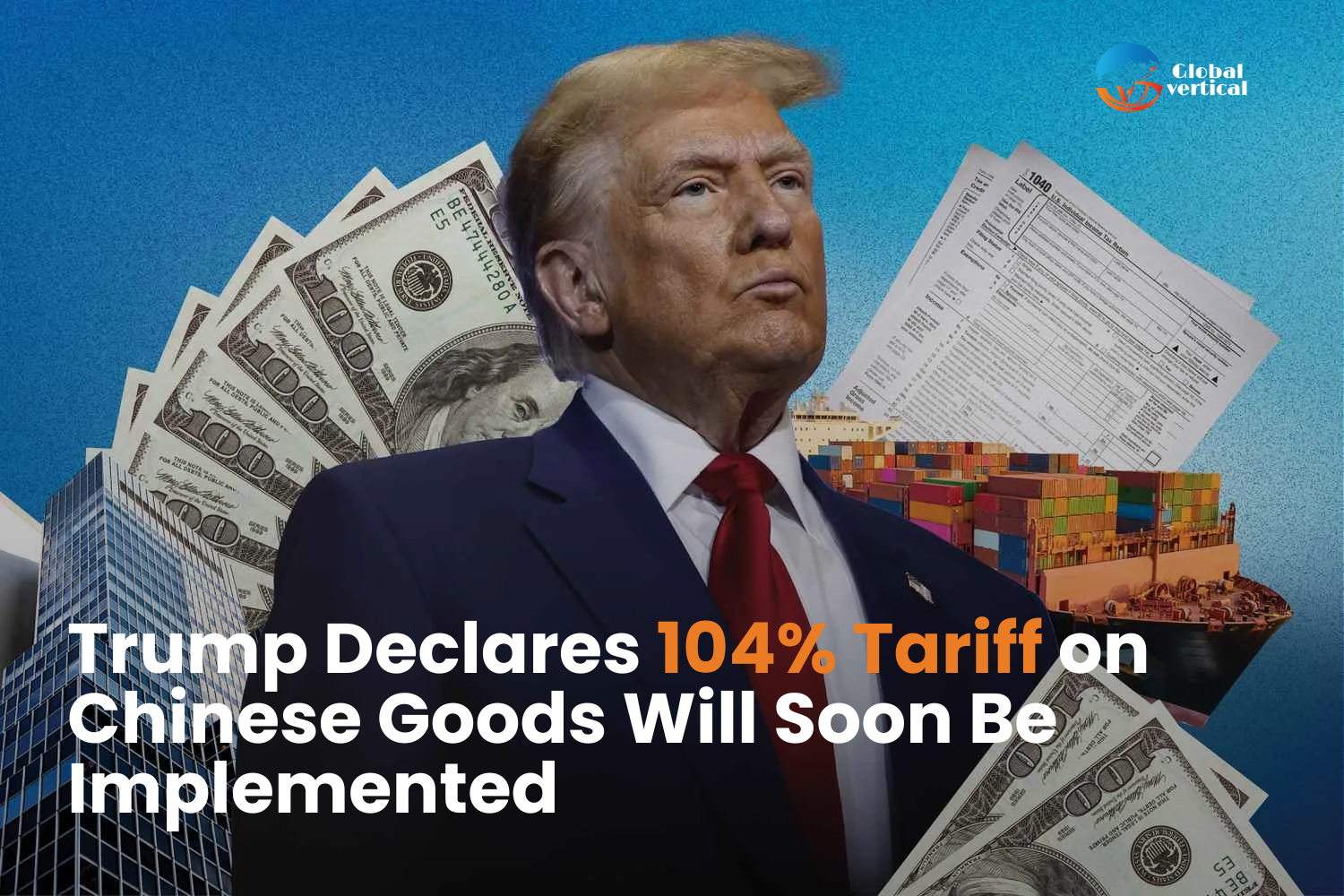Trump Declares 104% Tariff on Chinese Goods Will Soon Be Implemented

WASHINGTON — President Trump insisted on Tuesday that his aggressive tariff measures were essential to bring manufacturing and industrial production back to the United States, even as economists warn of escalating trade tensions and potential economic fallout.
The next wave of punitive tariffs on some of America’s largest trading partners—including a minimum 104% duty on Chinese imports—is set to take effect after midnight Wednesday. During an afternoon address at the White House, Trump acknowledged his tariffs were “somewhat explosive” but defended the policy as a necessary tactic to pressure nations engaged in what he called “unfair” trade practices.
“Many countries are coming to us to make deals,” the president said. Later, at a dinner with Republican lawmakers in Washington, Trump asserted that while other nations sought negotiations, he was content with the revenue generated by tariffs—claiming daily collections would reach $2 billion.
“I know exactly what I’m doing,” he declared, hinting at an upcoming announcement of “major tariffs on pharmaceuticals.”
Negotiations Amid Escalation
The White House signaled readiness to engage in talks, with officials stating that 70 governments had reached out to seek tariff exemptions. Trump confirmed plans to negotiate with Japan, South Korea, and others, while extending an olive branch to Beijing—despite a deepening trade war sparked by successive rounds of U.S. tariffs on China.
“China wants to make a deal, desperately. They just don’t know how to start,” Trump posted on social media. “We’re waiting for their call. It will come!”
Expanding Global Tariffs
On April 2, the president imposed a 10% global tariff on hundreds of products, vowing to escalate to higher “reciprocal” tariffs by April 9 for nations he accused of “exploiting” the U.S. His focus remained sharply on China, whose exports to America dwarf U.S. imports. Since February, Trump has levied multiple tariff rounds on Chinese goods, with rates hitting at least 104% for some categories by Wednesday—on top of existing duties from his first term.
Retaliation and Economic Warnings
China’s retaliatory measures and other nations’ counter-tariff plans have heightened fears of a U.S. recession, with economists now viewing the risk as a “coin toss.” Trump dismissed such concerns, vowing to advance his trade agenda. His advisers pointed to recent concessions from some countries, though mixed signals emerged about the administration’s willingness to compromise.
Market Turbulence and Mixed Signals
Reports of potential negotiations briefly buoyed stocks after a three-day slump, but the S&P 500 erased gains by Tuesday’s close, marking a fourth straight decline.
At a press briefing, White House Press Secretary Caroline Levitt confirmed Trump’s call with Japan’s prime minister and said the U.S. would pursue “tailored trade deals” with nations seeking exemptions. However, she denied any “shift” in strategy, emphasizing that tariffs would proceed as planned.
“The U.S. holds the leverage,” Levitt stated. “We don’t depend on other countries the way they depend on us.”
Treasury Secretary Scott Bensent echoed the stance, criticizing China’s retaliation and asserting America’s upper hand: “What does China gain by raising tariffs on us? We export one-fifth of what they send to us. This is a losing game for them.”









